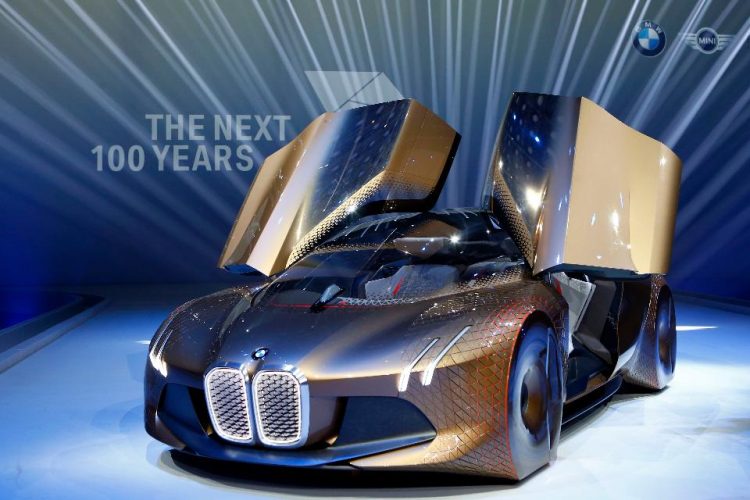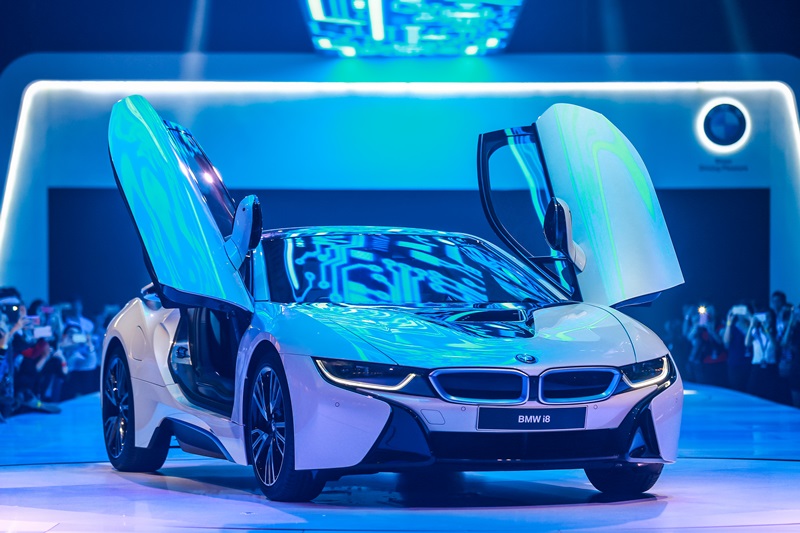As the electric-only bandwagon continues to roll along, the BMW Group has announced that for 2017 it expects sales of its electrified vehicles to exceed 100,000 units for the first time in a single year, with the all-electric BMW i3, BMW i8, BMW iPerformance plug-in hybrids and the plug-in hybrid MINI Countryman all contributing to the figures.
The company’s “electrified” range currently comprises nine electrified vehicles and will be further complemented in 2018 by the all-new BMW i8 Roadster. Shortly after that, battery-only solutions will be rolled-out across the BMW Group’s core brands, with its plant in Oxford starting production of the battery-powered MINI in 2019, and the battery-only BMW X3 following in 2020.
 The BMW iNEXT (Image: InsideEVs.com)
The BMW iNEXT (Image: InsideEVs.com)
The following year (2021) will see the launch of the BMW Group’s new technology spearhead: the all-electric BMW iNEXT. This will be manufactured at Plant Dingolfing – a decision that underscores the importance of Germany as a base for future technologies and a centre of excellence for electric mobility.
However, in an unexpected turn of events, the BMW Group also announced that developments for the traditional internal-combustion engine (IC) would not stagnate. On the contrary, BMW are spearheading a drive toward clean-diesel engines too.
“Future mobility will definitely depend on state-of-the-art diesels as well (as electric). For almost two years now, diesel technology which is cutting-edge, highly efficient and popular with customers, has been deliberately and publicly discredited. This has caused tremendous uncertainty among millions of drivers and it’s not going to get us anywhere. The German automotive industry will remain strong in innovation: we will provide tomorrow’s mobility solutions.” said BMW AG Management Board Chairman Harald Krüger.
“Modern, efficient diesel engines ensure lower CO2 emissions and therefore make an important contribution to protecting the environment. In addition, when it comes to many unwanted emissions, diesels are just as clean or even cleaner than petrol engines. This can certainly be said of particulate, hydrocarbon and carbon monoxide emissions, meaning that three of the four major diesel pollutant issues have been resolved and no longer have any adverse effect on air quality. This is why the BMW Group is calling for objective discussions based on facts and scientific evidence,” he added.
Averaged across the fleet, BMW Group diesel vehicles emit 40% less NOX than the German average, as reported by the Germany Federal Environment agency in April 2017.
Source: BMW Press
Follow us on Instagram, Facebook, Twitter or Telegram for more updates and breaking news.




